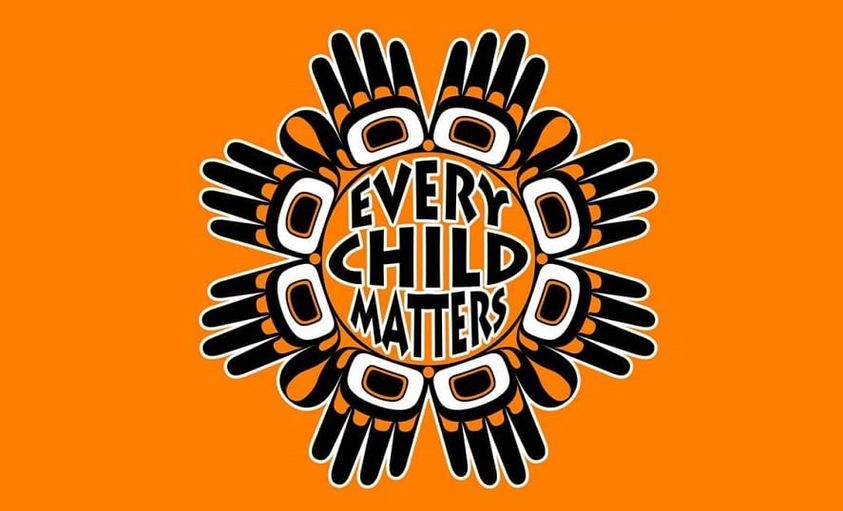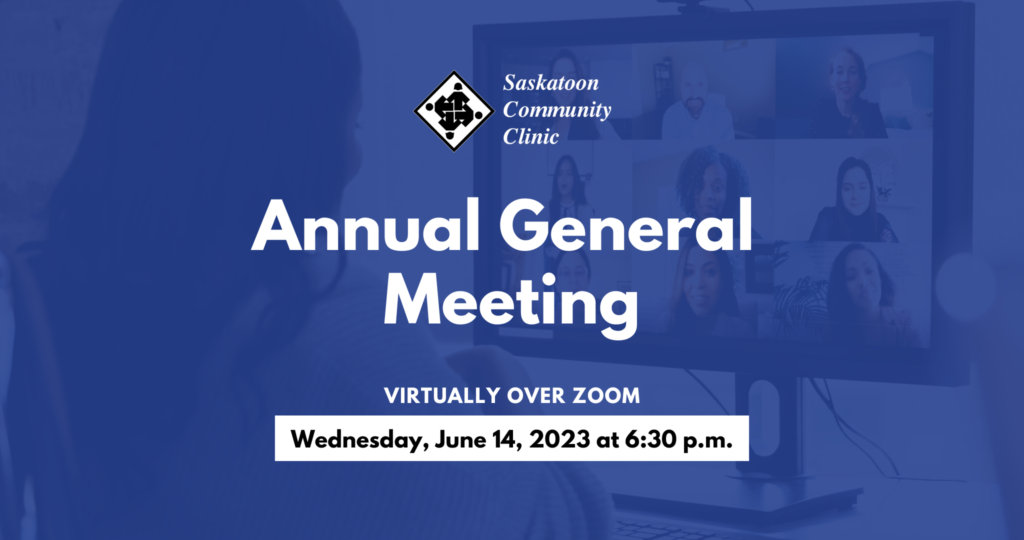We are closed on Friday, September 29 and Saturday, September 30 for National Day for Truth and Reconciliation
Regular clinic hours will resume on Monday, October 2, 2023

Please note a one-day change of hours at SCC’s Downtown Clinic on Thursday, September 21 and 28
On Thursday, September 21 and 28 we will open to patients/clients at 9:30 a.m.
Thank you for helping us accommodate our staff meetings!
Saskatoon Community Clinic membership purchase/renewal now online!
Dear Members:
Many of you have been asking for the option to pay your voluntary annual service fee or to purchase a new membership online for our co-operative, the Community Health Services (Saskatoon) Association Inc.
That day has arrived!
When you receive your notice for your annual service fee or you just want to encourage your friends and family to become members, you can head to our website here: https://www.
If you have any questions or run into any issues with our new online process, please do not hesitate to let us know at member.relations@
Sincerely,
The MPR Department
Seniors Advisory Council’s Student Research Project final report now available – ‘Seniors Advocates in Canadian Provinces’
At the Saskatoon Community Clinic’s Annual General Meeting of 2017, the Clinic’s membership adopted a resolution moved by the Seniors Advisory Council requesting the establishment of an Independent Seniors Advocate in Saskatchewan. The purpose of this report is to explore the role and function of Seniors Advocates in Canada in order to help inform this resolution.
2023 Annual General Meeting

Virtually over Zoom
Wednesday, June 14, 2023
6:30 p.m.
Please find the meeting package below:
Annual General Meeting 2023 Meeting Package
To register, email [email protected] or phone 306-664-4265.
Advance registration required by Wednesday, June 7 at 5 p.m.
Guest Speaker
Dr. Jaris Swidrovich, a Two Spirit, Saulteaux First Nations and Ukrainian man and pharmacist from Yellow Quill First Nation, will be sharing his knowledge and experience in a presentation called ‘Indigenous Peoples’ Health and Cultural Safety’. Swidrovich is passionate about health and education and how Indigenous and other marginalized peoples’ are impacted at all levels of these systems. He is an Assistant Professor at the University of Toronto, the first and only self-identified Indigenous faculty member in pharmacy in Canada and a PhD Candidate in Education at the University of Saskatchewan. He is also a former board member of our co-operative.
Resolutions
Submission of resolutions accepted until Sunday, June 4 at midnight. To submit a resolution, please email [email protected].
Call for Nominations
Members will elect three CHSA Board Directors and one Communications Committee member at the meeting. If you are interested in running, please see the Candidates’ Package at https://saskatooncommunityclinic.ca/chsa-board-and-communications-committee-member-openings-2023/ or contact the board secretary at 306-664-4240. If we receive your biography seven days before the meeting, it will be included in the package sent to all registrants.
For more information, please contact Member and Public Relations at 306-664-4243 or [email protected].
CHSA Board and Communications Committee Member Openings 2023
Elections at the upcoming virtual Annual General Meeting on Wednesday, June 14, 2023 are for:
- Three Board members; Board members normally serve for three-year terms unless they are completing the term of a Director who is retiring early from their position.
- One Communication Committee member; Communication committee members normally serve for two-year terms; there is one unfilled position.
You must be a member of the CHSA to be eligible to stand for election. If you are not a member, you must apply by Friday, May 26 at 4 p.m. in order to be eligible. If you are not a member, please contact Board Secretary Hazel Javier at (306) 664-4240 or [email protected] who will facilitate your membership being processed and approved.
The information you provide in your application will be used and disclosed for the purposes of Community Health Services (Saskatoon) Association election and post-election purposes. It will be made publicly available as required for these purposes.
The Nominating Committee asks candidates to inform us of their intentions by May 31. This allows us to be able to share your candidacy in the meeting package we send out to AGM registrants in advance of the meeting. Early applications are appreciated for this reason, but we can receive nominations up until the time of the election.
Interested in running? Click on the candidate package link below:
Seniors Advisory Council ‘Aging in Place’ Report
In the spring of 2022, the Seniors Advisory Council (SAC) decided to reach out to Saskatoon Community Clinic (SCC) members who are older adults to learn more about their healthcare and independent living needs. The Seniors Survey “Aging in Place” was distributed in the Spring 2022 newsletter Focus, and was available on the Clinic website and in the Westside and Downtown Clinic offices. Two hundred and thirty-five (235) seniors responded to the survey, the majority of respondents being patients at our Downtown Clinic.
View the full report here: Seniors Survey Report 2023
Easter hours

Please take note of our upcoming hours this Easter weekend.
Downtown clinic:
Friday, April 7: CLOSED
Saturday, April 8: 9:00am – 1:00pm
Sunday, April 9: CLOSED
Monday, April 10: CLOSED
Westside clinic:
Friday, April 7: CLOSED
Saturday, April 8: 9:00am – 5:00pm
Sunday, April 9: CLOSED
Monday, April 10: CLOSED



